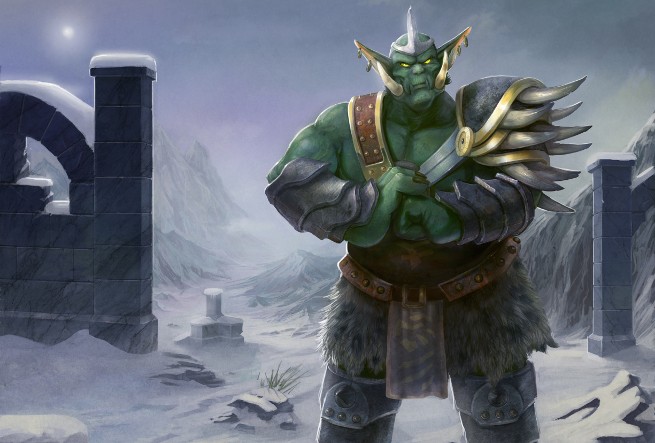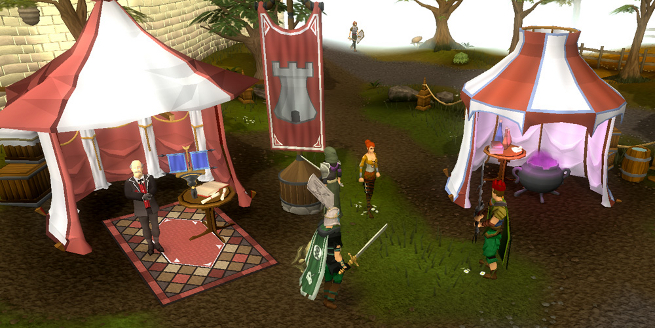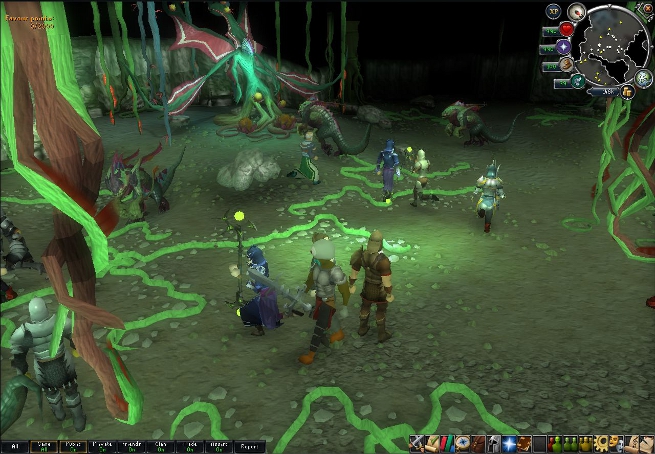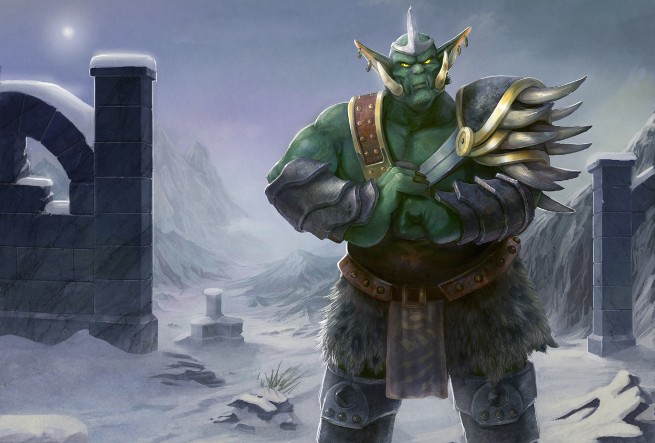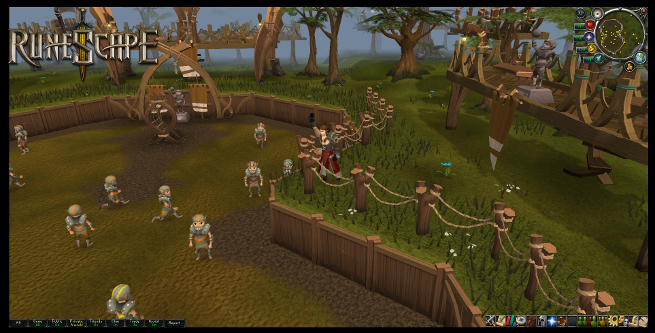With thousands of players online simultaneously, each sinking untold hours into a title, massively multiplayer online games (MMOs) face some unique hurdles when it comes to narrative structure.
A developer on the superhero MMO City of Heroes allegedly said around 80 percent of players don’t read quest descriptions outside of specific tasks they need to complete. Does this suggest that storytelling is largely irrelevant to MMOs or that it needs improvement?
Dave Osborne (Mod Dave), narrative designer on the long-running MMO RuneScape, and Mark Ogilvie (Mod Mark), the game’s lead designer, spoke to GamesBeat via email, offering their thoughts on engaging a large, diverse group of gamers in a story.
Stopping to smell the roses
RuneScape’s loot collectors are known as “power gamers.” These are players focused entirely on accumulating wealth and XP. Ogilvie acknowledges that power gamers will merrily click through story dialogue in the rush to finish a quest, but says, “it’s our job to ensure they occasionally stop to smell the roses.”
Even getting power gamers to begin a story-driven quest is tricky. “We make sure the rewards for quests are motivating for all players,” says Ogilvie. “For a power gamer, we need to ensure that the rewards offer more XP than they would have gained during their normal gameplay, and that quests unlock other advantages to increase their average XP per hour.”
Once they’re on a quest, “we hope to ambush [power gamers] with an engaging and funny storyline,” says Ogilvie. They also throw puzzles into the mix, encouraging players to “take time to understand the environments, dialogue, characters, and lore behind them.”
“We’re acutely aware that players don’t want to wade through text in the search for rewards,” says Osborne. “We encourage brevity and the reading aloud of dialogue, particularly as we move to voice-acting.” He points out that editors manage word counts and that focus groups test dialogue. The design team also concentrates on providing immersive environments and audio.
Implementing this range of strategies helps to improve player engagement, according to Ogilvie: “We constantly read feedback on our forums that players find themselves embarking on a quest with the rewards being their primary focus, only to find themselves engrossed by the characters.”
The dangers of fetch quests
Two stock missions types often characterize gameplay in MMOs: either killing a certain number of creatures (hunts) or carrying objects from point A to point B (fetch quests). This limited range of activities carries with it an inherent risk of repetition, but Osborne believes that RuneScape sidesteps this problem entirely.
“We’re lucky,” he says. “We made an early decision ten years ago to buck the trend of ‘Kill X creature for Y reward’ questing, aiming for story experiences that are rich and hours in length. We demand that every quest has a ‘hook’ that interests everyone in our design team. Our latest quest, for example, flips the traditional format and casts the player character as quest-giver, rather than quest-participant.”
“In that sense, we’re much more like traditional pen-and-paper role-playing adventures, which are certainly my background, and the original founders’, too,” says Ogilvie.
Using the TV model
Industry veteran Chris Klug has argued that video games should be structured like a movie or a television show, rather than a book or a piece of literature, as games are more concerned with action than description.
Similarly, RuneScape uses serialized TV and comics as a template for how to keep players engaged, with new chunks of storyline delivered each month.
“This has been really successful for us,” says Osborne. “Multiquest storylines allow us to deliver cliffhangers and reveals, and we can constantly cross-reference our other RuneScape stories and narrative strands to create a large, engrossing web of story.”
RuneScape is well known for lacking a central, ongoing storyline, but Osborne and Ogilvie don’t believe this is a problem. “I don’t think there even needs to be a dominant storyline in an MMO, or indeed, that it needs to be told in a traditional way,” says Ogilvie. “The overarching storyline of RuneScape is best explained as a metanarrative: a story about a story, gathering a wealth of smaller stories and making them a larger whole.”
“It’s easy to make the mistake that a player needs continuous storyline content,” says Osborne. “You’re never going to satisfy a voracious story player. No matter how many resources you have, invention and variety will soon dry up.”
Writing with broad strokes
With a diverse community distributed across 150 countries, RuneScape’s storytelling has to hit a wide demographic. “A great deal of our success as a game has come from being immediately accessible,” says Osborne. “Our stories are no different, and we aim broadly when we design.”
“We tend not to design our stories — or any game content — according to gender or age demographics,” he says. “References that require cultural or historical knowledge are kept to a minimum. Our story structures often lean on successful and mythic archetypes, and our humor is intended to be universal, in the same manner as Pixar animated movies are.”
“We have always believed that storyline and tone diversity are the best ways to keep our developers and writers engaged,” says Ogilvie, “and if you have a team of individuals engaged with your product, your users will be, too.”
With RuneScape recently passing 200M registered accounts, it’s hard to argue with that sentiment.
VentureBeat's mission is to be a digital town square for technical decision-makers to gain knowledge about transformative enterprise technology and transact. Learn More
